Touring caravan sites offer scenic views and a friendly community, but owning a caravan involves practical considerations too.
Are you tempted by the idea of hitching up a caravan and exploring the UK countryside at your own pace? Touring caravans have surged in popularity as a flexible and often cost-effective holiday option. The freedom of a home on wheels, with no hotel check-outs or set itineraries, is undeniably appealing. But alongside the romantic vision of spontaneous road trips come real responsibilities and costs.
This guide explores the pros and cons of owning a touring caravan in the UK. We’ll look at costs, maintenance, storage, travel limitations, insurance, and the community culture. By the end, you’ll have a clear picture of whether caravan ownership suits your lifestyle.
Cost Considerations
One of the first questions is: Can we afford it? Caravan ownership involves a substantial upfront cost, plus ongoing expenses. Here are key points to consider:
Initial Purchase: New touring caravans start at around £10,000, reaching £20,000-£30,000+ for premium models. Used caravans can be cheaper, but may require more maintenance. Always consider the total cost of ownership, not just the purchase price.
Insurance: While not legally required, caravan insurance is strongly recommended. Annual premiums typically range from £150 to £500, depending on value, usage, and storage. Secure storage and safety devices often reduce premiums.
Servicing & Maintenance: Budget £200-£400 per year for annual servicing. This includes checking the chassis, brakes, tires, gas, electrics, and damp. Skipping maintenance can lead to costly problems and may affect warranties or insurance.
Storage Fees: If you lack space at home, expect to pay for storage. Outdoor sites cost less; indoor facilities offer better protection but are pricier. Security features (like CCTV or CaSSOA accreditation) are key factors.
Travel & Camping Costs: Campsite fees usually run £25-£50 per night for a family pitch. Towing increases fuel use. Expect to spend an extra £100-£200 per 500 miles. Your tow car will also see more wear.
Accessories & Upgrades: Essentials include towing mirrors, hitch locks, leveling blocks, and possibly an awning. Costs add up quickly, so leave budget room for these extras.
Bottom line: If you only use a caravan occasionally, costs may outweigh benefits. But for frequent travelers, a caravan can pay for itself over time. Consider renting a caravan for a holiday first to try out the lifestyle.
Freedom and Flexibility
One of the biggest advantages is the freedom a caravan provides.
Holiday on Your Terms: You set the schedule. No check-in times or fixed itineraries. Want to stay longer at a beach? Just do it. Want to move to escape the rain? Hitch up and go.
Explore More: Caravanning opens access to remote beaches, quiet villages, and hidden spots you might miss when hotel-dependent. The UK (and Europe) becomes your travel playground.
Comforts of Home: Sleep in your own bed, cook your own meals, and travel with familiar gear. Great for families who need space and routine, or anyone who values comfort.
Family & Pet Friendly: Caravans make it easier to travel with children and pets. Campsites are usually pet-friendly, and having your own space helps everyone relax.
Suits Different Lifestyles: Whether you’re a weekend explorer, a family seeking budget-friendly holidays, or a retiree with time to roam, a caravan adapts to your needs. It even works for remote workers wanting a change of scenery.
Flexibility is a core benefit. You can take off spontaneously and tailor each trip to your mood, weather, or interest. Just remember that peak seasons still require booking ahead at popular sites.
Maintenance Responsibilities
Owning a caravan comes with upkeep responsibilities, much like a second home on wheels.
Chassis, Brakes, and Tyres: Service annually. Replace tyres every ~5 years. Inspect brakes, hitch mechanism, and bearings.
Electrical and Gas Systems: Schedule an annual habitation check. Ensure safety of wiring and gas appliances.
Water and Damp Checks: Drain and sterilize water systems regularly. Watch for leaks and damp around windows and vents. Address seal failures early.
Cleaning and Upkeep: Clean inside and out regularly to prevent grime, mould, and algae. Air out appliances. Wash awnings before storage.
Repairs and Replacements: Budget for occasional fixes. DIY skills help, but hire pros for safety-critical repairs.
Maintenance costs time and money, but it keeps your caravan safe and ready to go. A simple logbook helps track service history. Online communities and owner’s clubs are great sources of tips.
Storage Needs
When not in use, you need a place to park your caravan.
At Home: Best if you have a large driveway or garden. It’s convenient and free, but not always possible. Some neighbourhoods restrict visible caravans. Security is important. Use wheel locks and consider CCTV.
Storage Facilities: These range from basic to high-security sites. CaSSOA-rated locations offer peace of mind. Costs vary based on region and indoor/outdoor options. Some sites have waitlists.
Seasonal Pitches: Leave your caravan at a holiday park for the season. Ideal for those who favour one destination. You save towing effort but lose travel flexibility.
Private Options: Some owners store on farms or friends’ land. These are affordable but may lack security. Visit regularly to check for pests or leaks.
Plan your storage before buying. Consider access, manoeuvrability, and long-term needs. If storing at home, invest in good security. If storing off-site, factor in convenience and cost.
Travel Limitations and Towing Challenges
Towing a caravan introduces some travel challenges.
Learning to Tow: Towing requires skill, especially reversing. Many take a towing course to build confidence. Driving with a caravan changes your handling and braking.
Tow Vehicle: You need a car with suitable towing capacity. Small hatchbacks won’t cut it. Upgrading your vehicle can be expensive. The car and caravan weight ratio should be safe; 85% is a common guide.
Speed Limits: Towing vehicles face lower speed limits. On single carriageways, 50 mph; motorways and dual carriageways, 60 mph. You can’t use the outside lane on multi-lane motorways.
Route Planning: Avoid narrow roads, steep hills, and low bridges. Not all car parks or petrol stations fit a caravan. Plan stops in advance.
Weather: Wind can destabilise a caravan. Winter towing requires preparation, like antifreeze and winter tyres. Many take a break from touring in colder months.
Destination Limits: Caravans don’t suit every trip. Urban holidays are tricky. Peak traffic times can be exhausting. Long towing journeys require alertness and more breaks.
With preparation and practice, towing becomes manageable. If it still feels daunting, consider static caravans or motorhomes. But many owners grow to enjoy the driving and see it as part of the experience.
Insurance and Legal Requirements
Caravan Insurance: Strongly recommended. Your car policy only covers third-party liability while towing. Caravan insurance protects against theft, fire, damage, and sometimes includes contents cover. It may also include breakdown recovery. Policies cost around £10-£40/month.
Breakdown Cover: Make sure your plan includes caravans. Some insurers offer this as an add-on. Without it, you risk being stranded if the caravan or car breaks down.
Licensing: As of 2021, most UK drivers can tow typical caravans without needing a B+E license. Still, always check your car’s tow limits and stay within legal weight guidelines.
Legal Essentials:
- Your caravan must have a matching rear number plate.
- Towing mirrors are required if the caravan is wider than your car.
- All lights must work properly.
- Caravans over 750kg need brakes and a breakaway cable.
- You can’t carry passengers in a moving caravan.
- Follow legal speed and lane restrictions when towing.
These are standard rules and soon become routine. Don’t skimp on insurance and legal checks. Proper coverage and compliance offer peace of mind.
Community and Culture of Caravanning
Owning a caravan connects you to a vibrant UK community.
Campsite Camaraderie: Caravan sites are friendly. People help each other, share advice, and enjoy social evenings. It’s easy to make friends and feel welcome.
Clubs and Rallies: Join groups like the Caravan and Motorhome Club or Camping and Caravanning Club. They offer exclusive sites, services, and social events. Rallies are popular and great for families.
Cultural Tradition: Caravanning is part of UK holiday heritage. Many adults recall childhood caravan trips and want to recreate that experience. The tradition continues with a modern twist.
Lifestyle Appeal: Caravan holidays promote outdoor living, simpler pleasures, and family bonding. Evenings around a board game or BBQ replace screen time. Days are spent exploring and relaxing.
Family Memories: Kids make campsite friends. Parents share experiences. The lifestyle fosters strong family connections and lasting memories.
You can stay private or dive into the social side. Either way, being part of the caravan community adds meaning to each trip.
Is Caravan Ownership Right for You?
Owning a touring caravan is more than a purchase, it’s a lifestyle. It offers freedom, comfort, and community. But it also comes with costs, effort, and some limitations.
If you love the idea of spontaneous trips, family bonding, and exploring the countryside, caravan ownership might suit you well. If towing, maintenance, and storage feel like too much hassle, consider alternatives like hiring a caravan or using static options.
Do your research. Talk to owners, visit dealers, and maybe rent one to try. With the right expectations and preparation, caravan life can bring years of affordable, enjoyable holidays. And who knows, your caravan might just become your favorite place to be.
Final tip: Take your time deciding. The more you plan now, the better your adventures will be later. Happy caravanning!

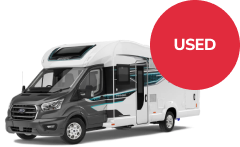
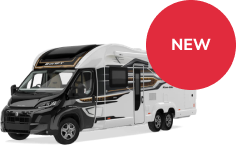
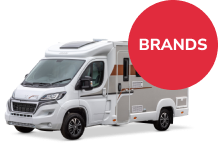
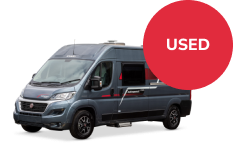
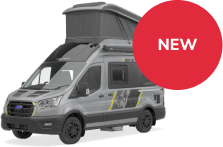
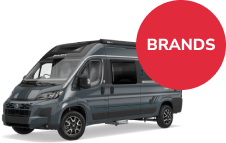
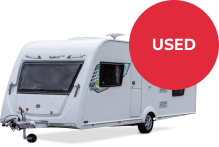
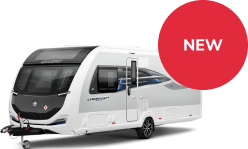
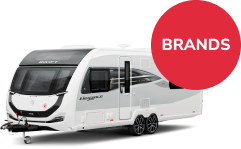

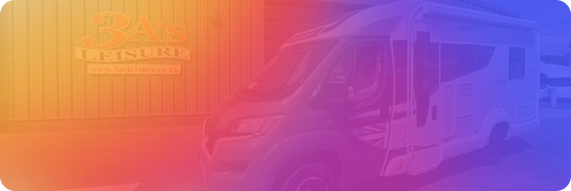
 Spidersnet
Spidersnet